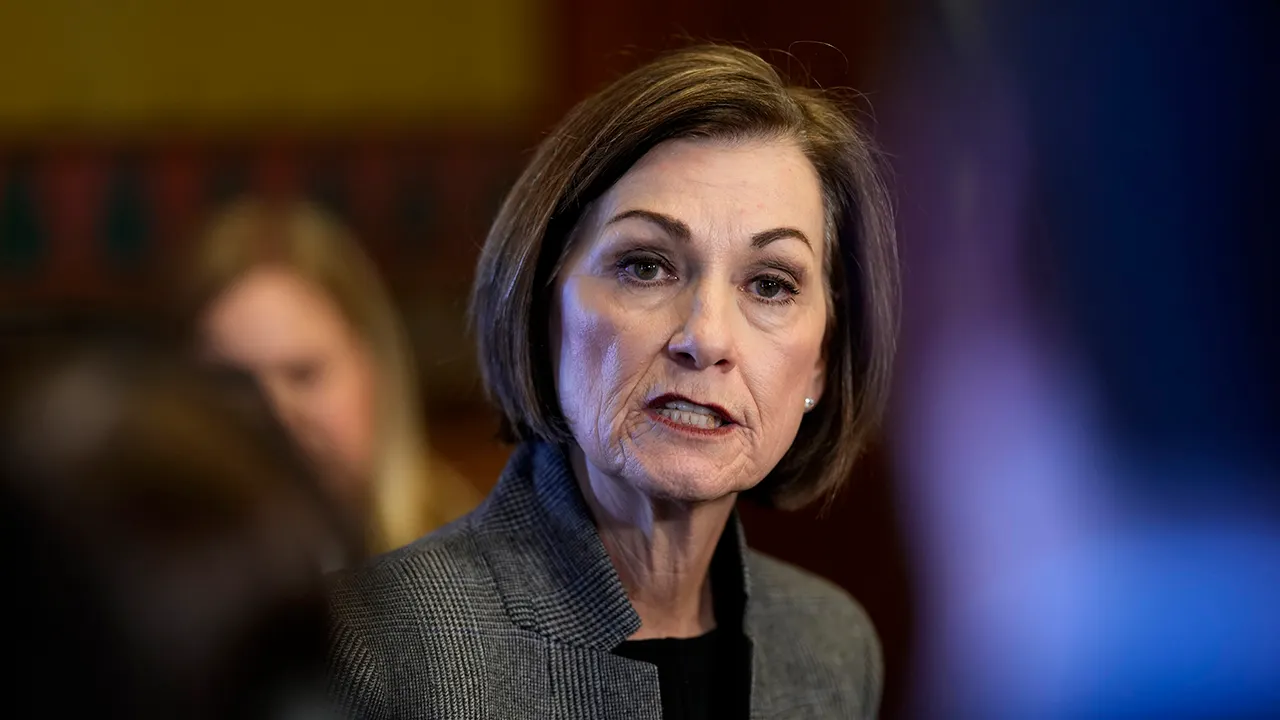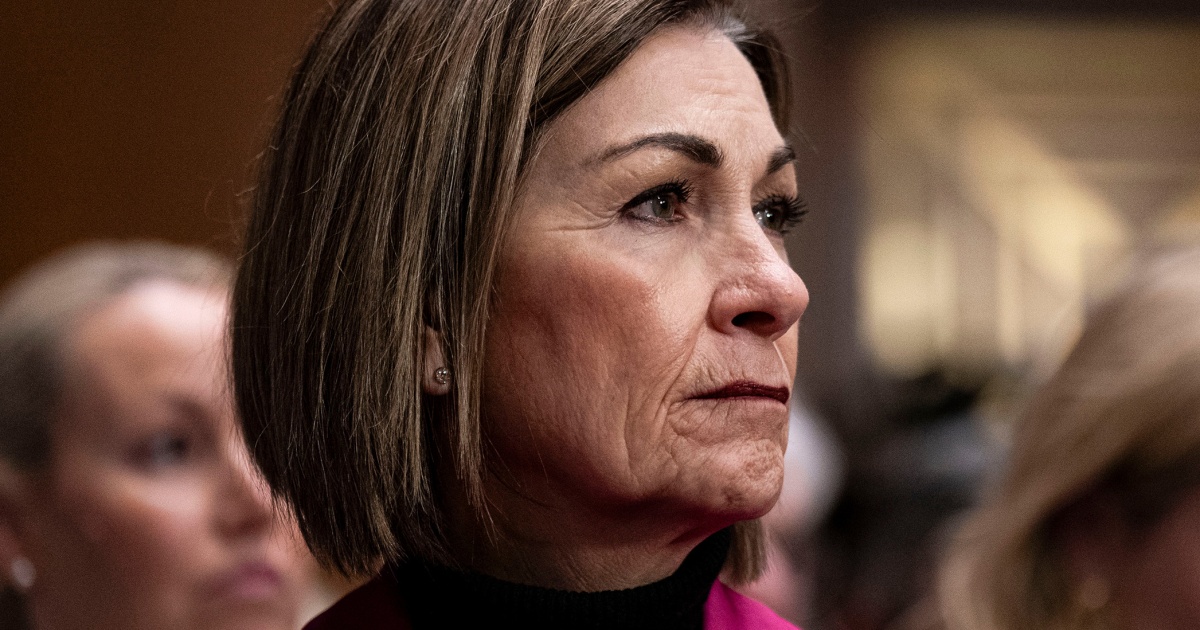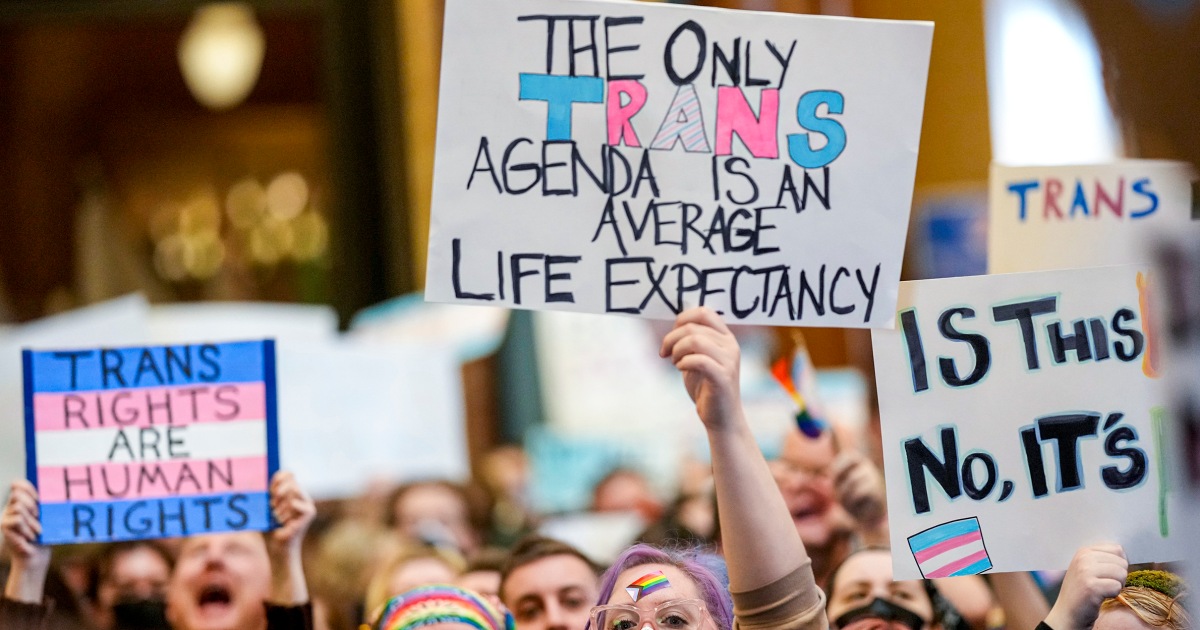Iowa Becomes First State to Revoke Gender Identity Protections in Civil Rights Code
Iowa's new law, effective July 1, removes gender identity protections, sparking protests and legal challenges from LGBTQ+ advocates amid promises of further discrimination.
Subscribe to unlock this story
We really don't like cutting you off, but you've reached your monthly limit. At just $3/month or $30/year, subscriptions are how we keep this project going. Start your free 7-day trial today!
Get Started
Iowa is the first state to remove gender identity protection from its state civil rights code.
Iowa governor signs bill removing transgender protections from civil rights code
 FOX News·2M·Mostly ReliableThis source is generally reliable but sometimes includes opinion, propaganda, or minor inaccuracies.Leans RightThis outlet slightly leans right.
FOX News·2M·Mostly ReliableThis source is generally reliable but sometimes includes opinion, propaganda, or minor inaccuracies.Leans RightThis outlet slightly leans right.
Still, despite the hand wringing of Democrats, the state’s supreme court has already undermined transgenderism to a degree by ruling that discrimination based on sex does not include gender identity.
Iowa First to Reverse 'Gender Identity' Rights Claim
 Breitbart News·2M·Mixed ReliableThis source has a mixed track record—sometimes accurate but also prone to bias, sensationalism, or incomplete reporting.RightThis outlet favors right-wing views.
Breitbart News·2M·Mixed ReliableThis source has a mixed track record—sometimes accurate but also prone to bias, sensationalism, or incomplete reporting.RightThis outlet favors right-wing views.
The new law removes gender identity from the code.
Iowa governor signs bill removing gender identity from state civil rights protections
 NBC News·2M·ReliableThis source consistently reports facts with minimal bias, demonstrating high-quality journalism and accuracy.CenterThis outlet is balanced or reflects centrist views.
NBC News·2M·ReliableThis source consistently reports facts with minimal bias, demonstrating high-quality journalism and accuracy.CenterThis outlet is balanced or reflects centrist views.
Iowa became the first US state to remove gender identity protections from its civil rights code on Friday when Gov. Kim Reynolds signed into law a bill that opponents say will expose transgender people and other Iowans to discrimination in all aspects of daily life.
Iowa becomes first US state to remove gender identity protections from its civil rights code
 CNN·2M·ReliableThis source consistently reports facts with minimal bias, demonstrating high-quality journalism and accuracy.Leans LeftThis outlet slightly leans left.
CNN·2M·ReliableThis source consistently reports facts with minimal bias, demonstrating high-quality journalism and accuracy.Leans LeftThis outlet slightly leans left.
Iowa will now become the first state to roll back civil rights protections for a group of people facing some of the highest rates of discrimination across the country.
Iowa becomes first state to remove civil rights protections for gender identity
 MSNBC·2M·Mostly ReliableThis source is generally reliable but sometimes includes opinion, propaganda, or minor inaccuracies.LeftThis outlet favors left-wing views.
MSNBC·2M·Mostly ReliableThis source is generally reliable but sometimes includes opinion, propaganda, or minor inaccuracies.LeftThis outlet favors left-wing views.The law passed quickly after first being introduced last week.
Iowa's governor signs a bill removing gender identity protections from the state’s civil rights code
 Associated Press·2M·ReliableThis source consistently reports facts with minimal bias, demonstrating high-quality journalism and accuracy.CenterThis outlet is balanced or reflects centrist views.
Associated Press·2M·ReliableThis source consistently reports facts with minimal bias, demonstrating high-quality journalism and accuracy.CenterThis outlet is balanced or reflects centrist views.
Summary
Iowa Gov. Kim Reynolds signed a bill on March 1 that eliminates gender identity protections from the state’s civil rights code, making Iowa the first state to remove such protections. The law, effective July 1, defines male and female strictly based on biological sex at birth and limits transgender rights, including bathroom access and participation in sports. Advocates and Democratic legislators oppose the law, asserting it discriminates against transgender individuals. Over 2,000 protesters rallied at the Capitol, voicing their concerns. Legal challenges by advocacy groups are expected, as the new law ignites fears of increased discrimination against the LGBTQ+ community.
Perspectives
Iowa has become the first state to eliminate gender identity protections from its civil rights code, a significant rollback that could lead to increased discrimination against transgender individuals.
The new law, supported by Republican lawmakers, is framed as a measure to safeguard women's rights and provide clear definitions of male and female based on biological sex, though critics argue it marginalizes transgender rights and undermines equality.
Advocacy groups are preparing legal challenges against the law and emphasize the need for ongoing efforts to protect LGBTQ+ rights, as many perceive this as a direct attack on their existence and well-being.
FAQs
History
- 2M